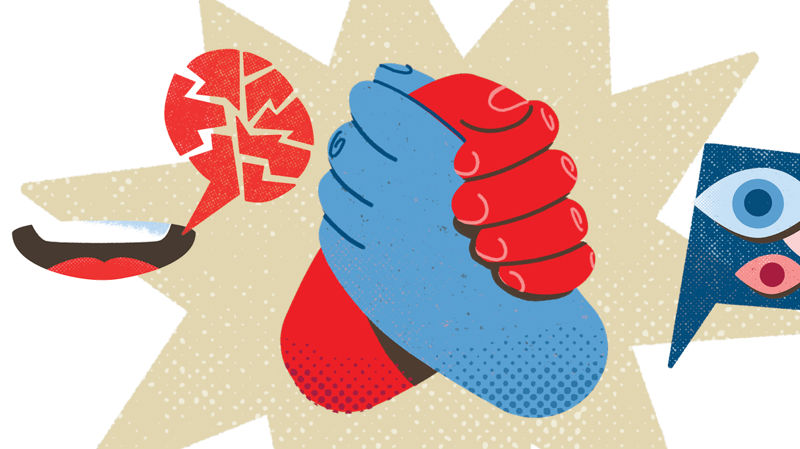Racism affects a person’s whole life

When you are constantly facing prejudice, your entire day-to-day life may pass in a state of hypervigilance. Experiences of racism may affect a person’s career path, mental health and relationships. By intervening in situations with racism, outsiders can show that not everyone around thinks in a racist way.
– Humans have a tendency to divide others into insiders and outsiders. Some external features deviating from the norm are quite visible, for example, and people can link different characteristics to these features in their minds. Being different is often considered a threat. When a person connects these biases of characteristics to another’s external features, this may emerge as microaggressions, for example, says psychologist and psychotherapist Ferdinand Garoff from the Red Cross’s preparedness group of psychologists.
– An example of an everyday microaggression is assuming that someone at a workplace must be the cleaner, simply based on their appearance.
Prejudices may affect one’s path in life
Racism can be visible in a person’s life in many ways. In direct interactions between people, racism may appear as name-calling or exclusion, but also as more subtle microaggressions. Saying ‘you speak Finnish so well’ to someone may be meant as a compliment – but can feel exclusionary to someone born in Finland.
Structural racism can be seen both in an individual’s life and in society. At school, the guidance counsellor may assume that a child that migrated to the country or the child of migrant parents will not have the sufficient prerequisites for higher education studies. When the guidance counsellors of several different schools give students different guidance based on their backgrounds, this will lead to an unequal education and labour market in society.
According to Garoff, a person experiencing racism may also suffer from internalised racism, which may mean that they do not want to be linked to a certain group, for example, due to the prejudice related to the group.
Life in a constant state of hypervigilance
If a person is continuously treated differently from those around them, they will start to constantly monitor how others are behaving towards them. This leads to minority stress.
– Repeated experiences of racism make people more sensitive to stress. Constant monitoring and preparing for potential threats causes hypervigilance. This can lead to physical pain, such as headaches and stomach issues. Additionally, a person experiencing racism may suffer from issues with concentration, or feelings of irritation or fear. Even just one experience of open racism may prove to a person that their fears are real, Garoff says.
Being constantly on their toes may make a person avoid situations where they could be exposed to unpleasant or threatening situations.
– This may become visible in areas such as what kind of a job the person dares to apply for or whether they can muster up the courage to join a certain hobby group. These fears can also be reflected in relationships; how and with whom the person dares to build a relationship with.
Anyone can intervene in racism
Anyone can act to reduce racism, regardless of whether they experience racism or not. In different communities, such as workplaces or hobby groups, the ground rules should be agreed on in advance, and it should also be decided what to do in case of any inappropriate behaviour. The principles of safer spaces could also be applied.
– Personally, everyone can pay attention to whether they treat everyone equally without e.g. highlighting the differences of others. If any misunderstandings or unpleasant situations do occur, these should be processed openly, says Garoff.
If a close friend or a good colleague tells a racist joke, for example, it is not always easy to intervene in the situation.
– Putting blame on the person should be avoided when bringing the issue up. Finding out who is ‘at fault’ is not the important part; deciding on how to behave when moving forward is. Situations where one party loses face should be avoided, as this may prevent them from accepting the feedback, Garoff says.
By intervening, you can show to a person experiencing racism that they are not alone.
Say ‘no’ to silent acceptance
Garoff also recommends being aware of one’s own emotional state when bringing up difficult situations. In a very indignant state, it may be better to come back to the issue later. Difficult situations can also be brought up later if intervening in it as the situation occurred was not possible, but the matter continues to weigh on one’s mind. In working communities, others can also be included in processing a challenging situation, if this makes it easier to bring up the issue.
Garoff reminds people that intervening in racism helps prove that you personally do not accept the unequal treatment of people.
– By intervening, you can show to a person experiencing racism that they are not alone. At the same time, you will demonstrate that not everyone gives their silent acceptance to racism.

Week against racism in March
